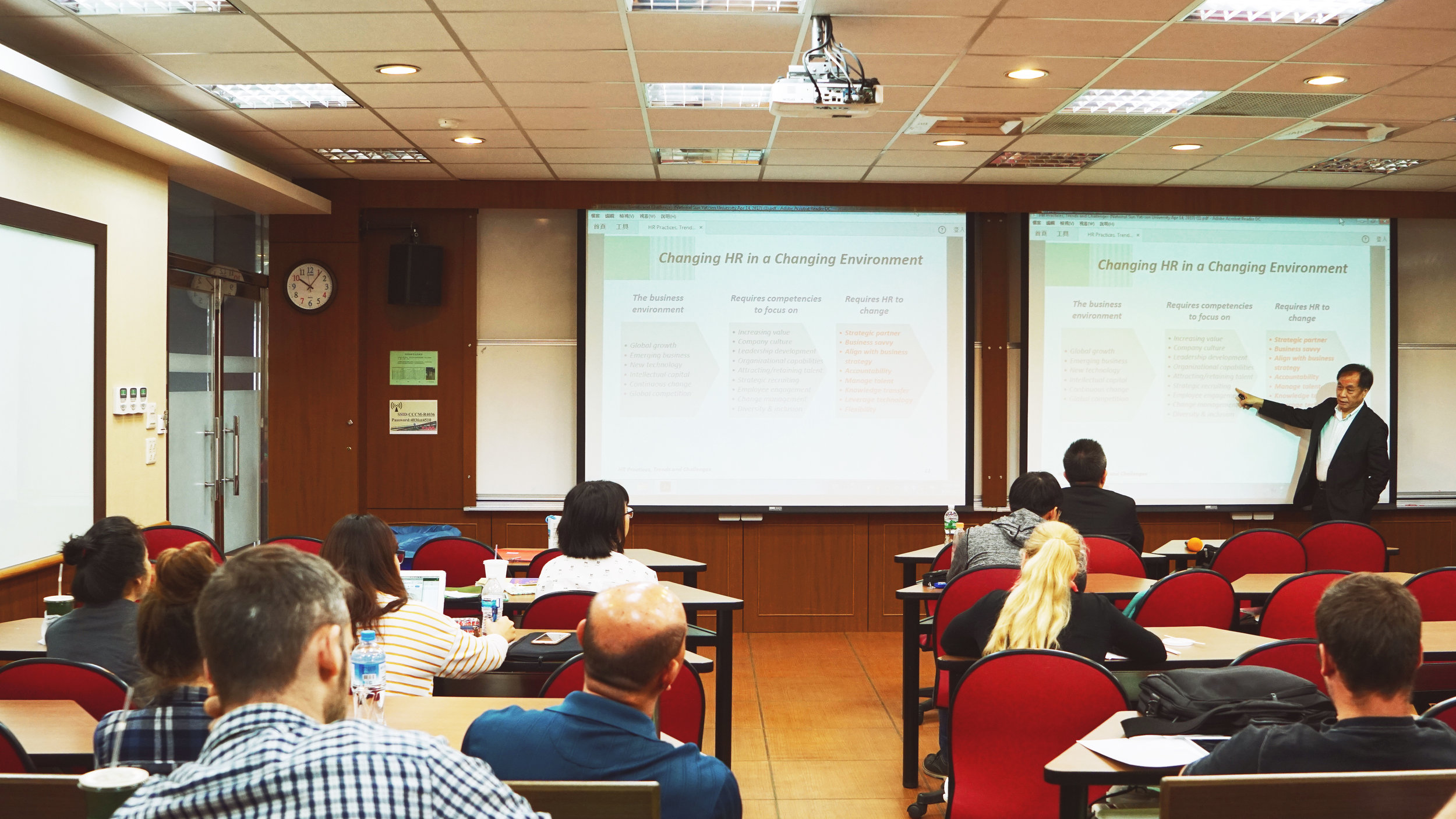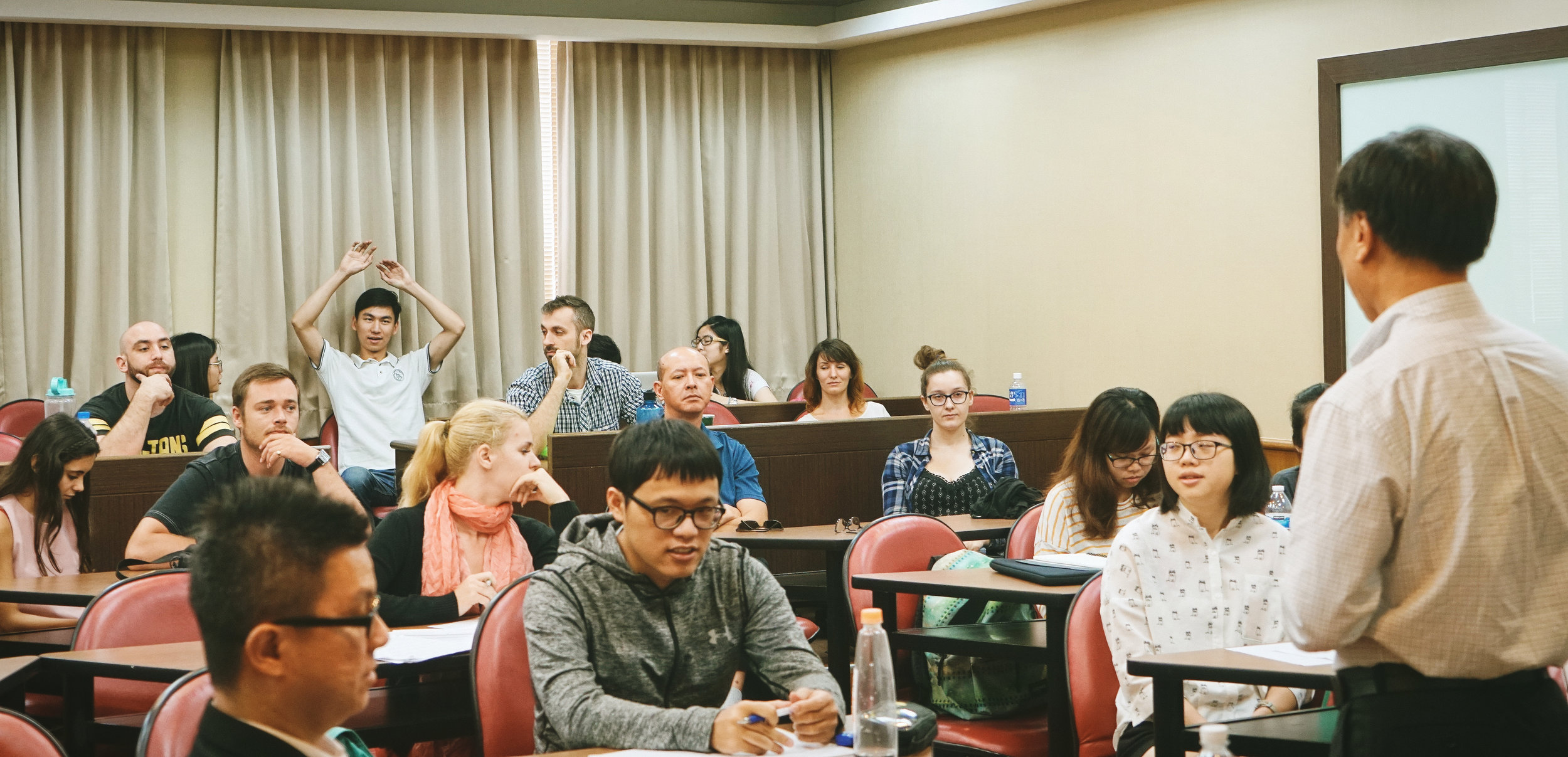Teresa Tong 童小洋 from HSBC:Caring, simply the best capital.
/關懷,讓人成為最好的資本
匯豐銀行,全球最大的金融服務機構之一,在全球設有3900多個辦事處,業務範圍從零售銀行、財富管理、工商金融到資本市場與私人銀行,如此大型的公司,可以想見對於人力需求之大。童小洋Teresa 帶著她可愛的笑容走進中山大學,她,是匯豐(台灣)的人力資本及組織發展部副總裁。
「大家對HSBC的印象可能就是大公司,裡面的員工就像隨時可以被汰換的螺絲釘吧?」Teresa笑著問同學,其實HSBC在台灣私人金融業中的Turnover rate是最低的,除了在選任合適人才時所使用的策略外,HSBC讓部門間、員工間與員工對外關係保持良好,創造人際與社會關係的高滿意度,並且尊重個體差異,在台灣保守的工作環境中鮮少看到企業敞開心房接納員工最真實的樣貌,但HSBC做到了。
「我們知道人有不同的需求,而工作只是一環。」HSBC其中一個重要的人力策略便是「關懷」,例如對LGBT族群的高任用率與深度認識,HSBC甚至替公司中的同志員工辦理了盛大的婚禮,讓員工流下喜悅的眼淚。秉持著關懷,HSBC讓員工感覺自己不是在冰冷機器中運作的小零件,而是經過細心保養、發光發熱的一部份。
為保持員工對手上事物的新鮮度,職務輪調也是HSBC人力策略中的重點,或許在過程中能夠找到一個人身上更寶貴的特質、學習新技能,影響未來職務發展。「透過明確的績效考核系統,我們能夠評估員工在職務上與職務輪調的過程中適得其所。」Teresa並表示要改變台灣的工作環境,必須從清楚的JD (Job description)做起,因此,HSBC的每個員工都能夠清楚理解自己的職務是甚麼,每個前來面試的人都知道自己進到什麼地方。
「如果從受雇者的角度出發,整個公司會變得很不一樣。」HSBC的諸多人力策略都希望以人為本,在員工關係與企業關係之間取得最佳平衡,「唯有如此,我們才能發揮所長,讓『人』成為最好的『本』,這才是Human capital的真諦。」Teresa說。
HSBC, one of the biggest banking corporates in the world, has more than 3900 offices all over the globe. Their business not only includes retail banking, but also financial management, capital market, private banking and so on. Our guest speaker, Teresa Tong, who came into the room with a warm smile on her face, is the vice-president of Human Capital and Organizational Development Department in HSBC Taiwan.
"I guess your impression to HSBC is just a big company, and the people working in it are only little screws which can be replaced anytime." She said. As a matter of fact, the turnover rate of the company is the lowest in the private banking industry in Taiwan. Other than the strategies applied when selecting and hiring people, HSBC maintains good employee relation, department relations, and external relations to create a high level of social satisfaction. HSBC also respects the differences among units, which is hard to be seen on Taiwanese working culture.
"We acknowledge that people have different needs, and working is just a part of it." A big part of the strategies in HSBC is "care", for example, the care to the LGBT community. From hiring them to holding weddings for the LGBT employees (during the days when same-sex marriage is yet legalized in Taiwan), the company made its employees shed tears of joy. With care, the employees at HSBC more than the parts working in a big machine, they're polished, taken care of and ready to shine.
To maintain the sense of freshness at work, job rotation is also focused by HSBC. Through job rotation, it is possible that we find something valuable in someone's characteristics, develop new skills and see a clearer career path for our employees. "With an on-spot performance management system, we can make sure that the employees find the right places of job rotation." Teresa then described how having clear Job Descriptions can change the working culture in Taiwan. "Our people know what their jobs are. And the people walking through the doors to interview with us know what they're getting into."
"If we think from the employees' aspects, the corporate would be entirely different." Many of the human-capital strategies in HSBC are well-considered to create a fine balance between the company itself and the employees. "Only by doing so, human can therefore be capital and resources, which is the true meaning of Human Capital." Teresa said.






